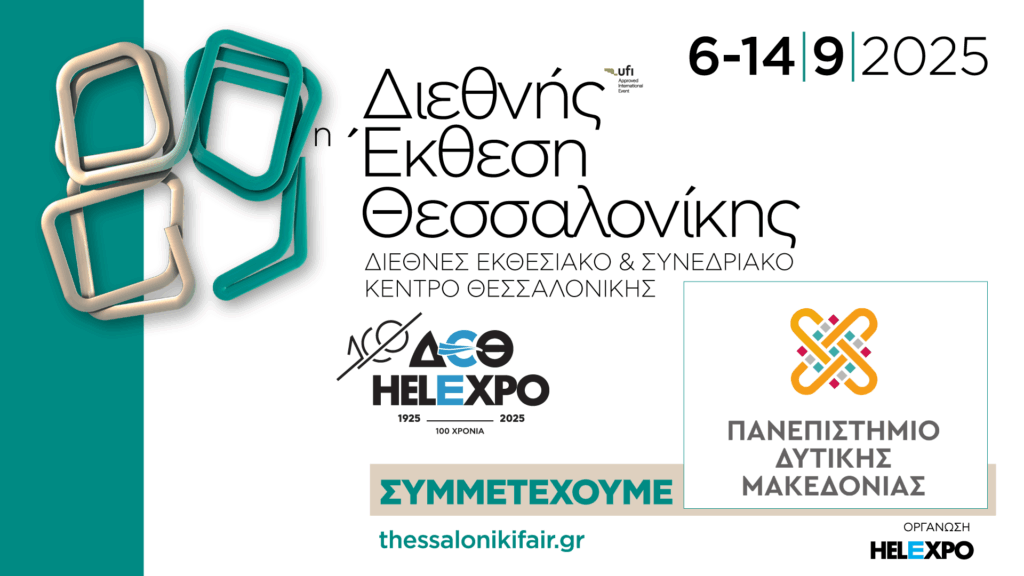
IThaca lab was thrilled to be a part of a truly historic event this month, participating in the 89th Thessaloniki International Fair from September 6 to 14, 2025. This year was incredibly special, as the fair celebrated its 100th anniversary, marking a century of innovation and commerce in Greece
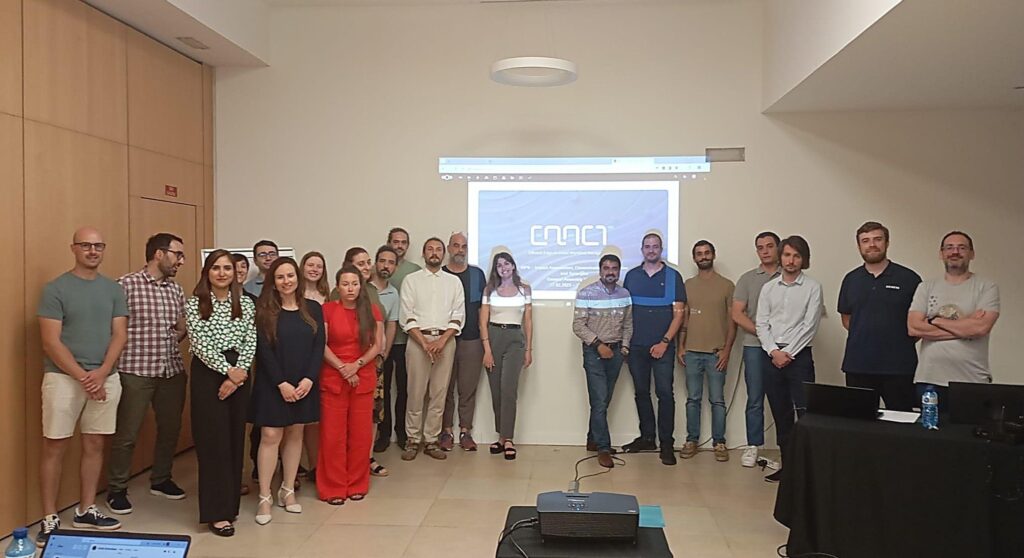
IThaca lab team is excited to share highlights from our recent participation in the ENACT General Assembly, held this past June 17–18 in the vibrant city of Valencia!
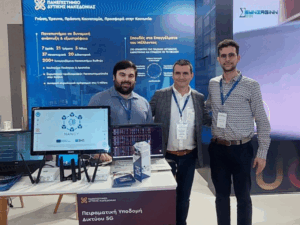
The ITHACA Lab of the University of Western Macedonia (UOWM) marked a dynamic presence at the International Exhibition of Digital Technology and Innovation, BEYOND 2025, held in Athens from April 4-6, 2025, at the “Metropolitan” Exhibition Center.
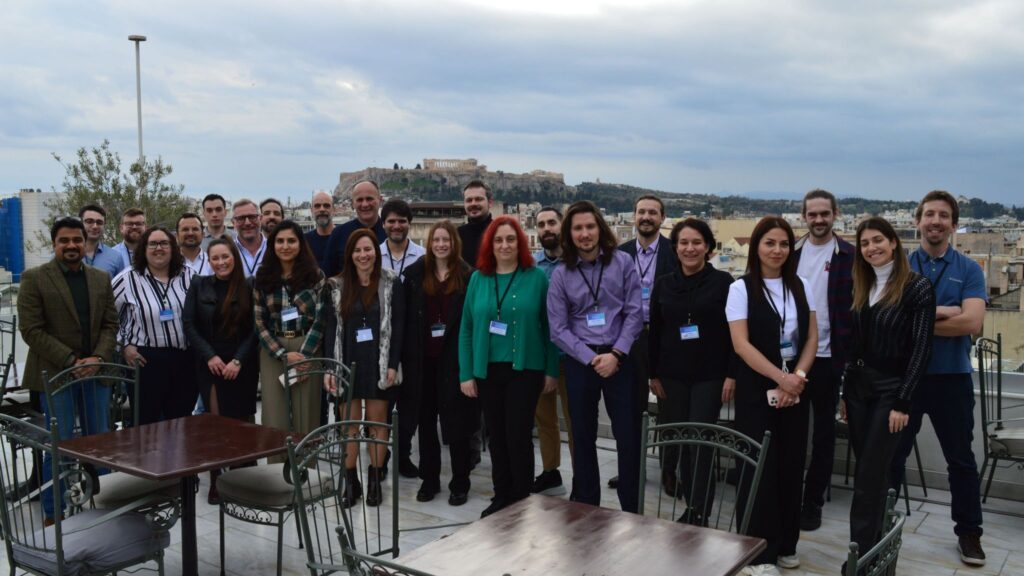
IThaca lab team had the pleasure of participating in the ENACT Plenary Meeting, held in the historic city of Athens. For our team, it was especially rewarding to welcome our consortium partners to Greece for this pivotal event, where we took major steps towards shaping the future of the Cognitive Computing Continuum
The EVOSST (Evaluation and Valorization of Social Services for a Sustainable Transition) project is a groundbreaking initiative focused on enhancing the efficiency and understanding of social services across the European Union, aligning with the European Pillar of Social Rights.
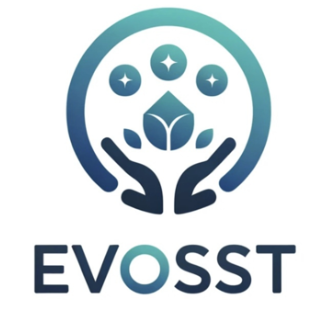 This event aims to bring together academics, professionals and stakeholders in the ICT, and social services fields to present the current findings and progress on improving quality of life, reducing inequality, and creating long-term economic and social stability. During the event, focus will also be given on how digital tools can shape the future of social care, aligning with broader goals of efficiency and inclusivity.
This event aims to bring together academics, professionals and stakeholders in the ICT, and social services fields to present the current findings and progress on improving quality of life, reducing inequality, and creating long-term economic and social stability. During the event, focus will also be given on how digital tools can shape the future of social care, aligning with broader goals of efficiency and inclusivity.
Participants will be introduced to the transformative role of technology in social services promoted via the EVOSST project, highlighting innovations that improve service delivery, accessibility, and user experience.
ITHACA participated in the 6th ELECTRON plenary meeting which was hosted by Universidad de Murcia and took place in Murcia, Spain. During the meeting, frutiful discussions took place about the progress of the ELECTRON Work Packages, while further discussions were held regarding the integration and validation in six large-scale use cases.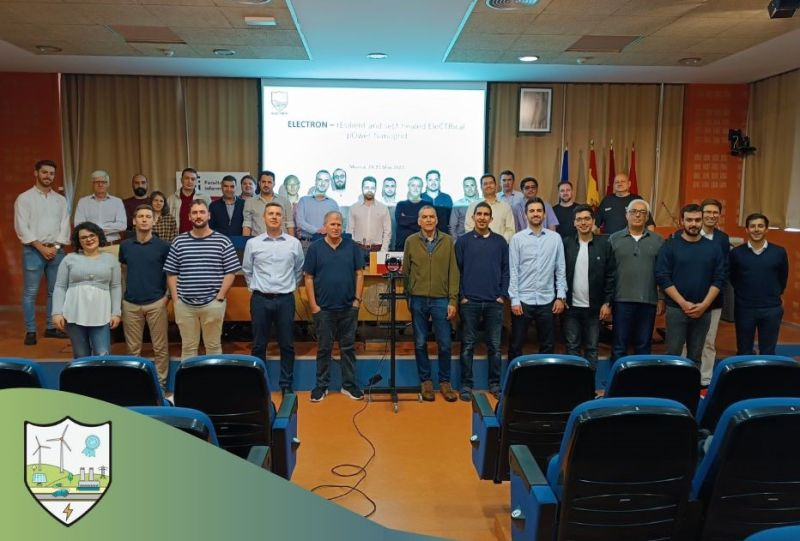
The AI4CYBER consortium meeting was held in Lisbon, on the 14-15 of March, and was hosted by PDMFC. The plenary meeting for the project, which has been active for 7 months, included discussions regarding the progress of AI4CYBER, the plans for the next six months and most importantly, the requirements for the three use cases that will be used for the demonstration of the AI4CYBER solutions.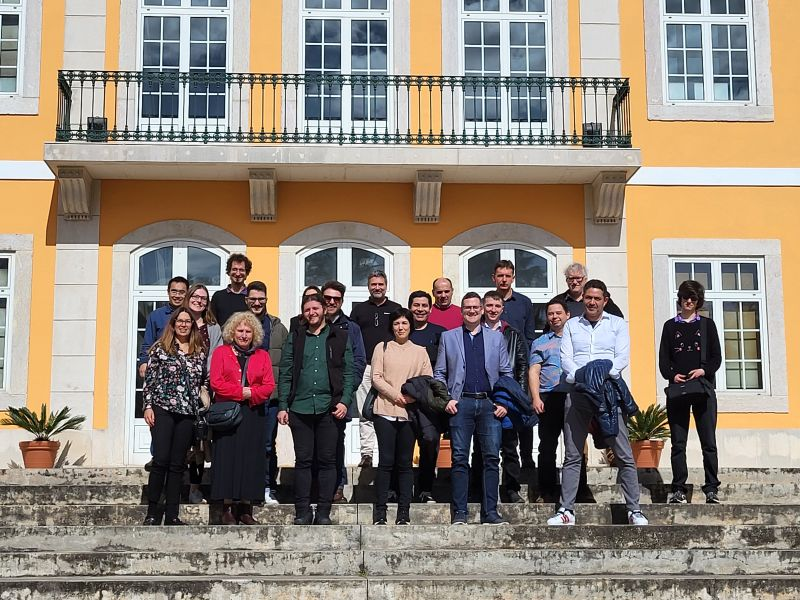
ITHACA is proud to share with you that the paper entitled "False Data Injection Attacks against Low Voltage Distribution Systems" was presented in 2022 IEEE GLOBECOM. The authors (Panagiotis Radoglou Grammatikis, Christos Dalamagkas, Thomas Lagkas, Magdalini Zafeiropoulou, Maria Atanasova, Pencho Zlatev, Alexandros-Apostolos A. Boulogeorgos, Vasilis Argyriou, Evangelos K. Markakis, Ioannis Moscholios and Panagiotis Sarigiannidis) investigate the impact of false data injection attacks against low-voltage distribution systems. This work was implemented in the context of H2020 ELECTRON and H2020 SDN-microSENSE projects.
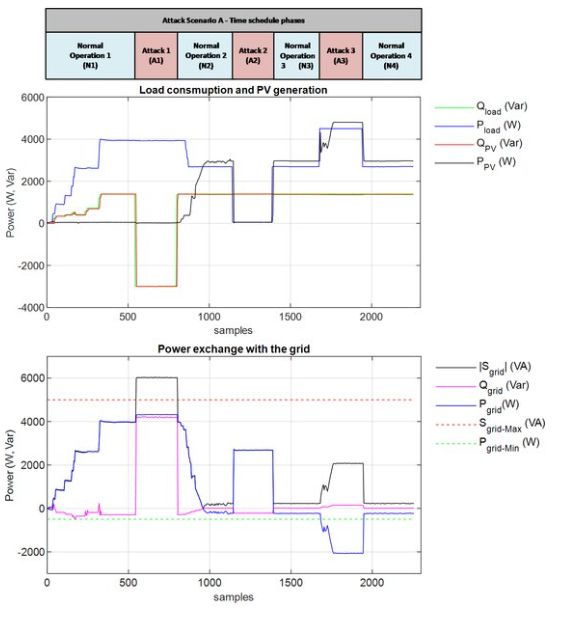
ITHACA is proud to share that the director of ITHACA, Prof. Panagiotis Sarigiannidis and Panagiotis Radoglou Grammatikis were involved in Stanford University's list (shared by Elsevier) of the Top 2% of Scientists in the World for 2022!
More information is available here.

ITHACA participated in the 4th plenary meeting of H2020 ELECTRON hosted by Netcompany-Intrasoft in Athens, Greece. The consortium discussed the status of the ELECTRON architectural components and the demonstration scenarios towards the 1st review meeting of the project.

ITHACA is proud to share that the paper entitled "Attacking and Defending DNP3 ICS/SCADA Systems" was presented in the 18th International Conference on Distributed Computing in Sensor Systems (DCOSS). The authors (Vasiliki Kelli, Panagiotis Radoglou-Grammatikis, Achilleas Sesis, Thomas Lagkas, Eleftherios Fountoukidis, Emmanouil Kafetzakis, Ioannis Giannoulakis, and Panagiotis Sarigiannidis) explore the internal vulnerabilities-by-design of the industrial protocol DNP3, demonstrated through 8 DNP3 attack scenarios, while designing and presenting the results of a Deep Neural Network (DNN)-based, multi-model Intrusion Detection Systems (IDS). This work was implemented in the context of H2020 SDN-microSENSE.
The paper is available through IEEEXplore.
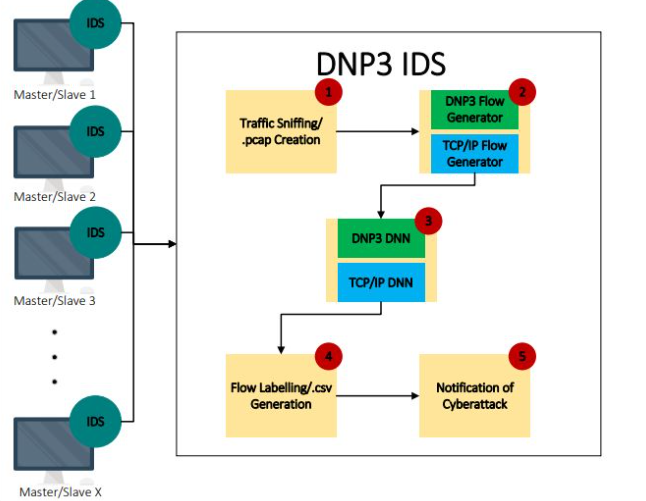
The Software Defined Networking (SDN) technology has been established as the de facto networking paradigm for complex and large-scale computer networks such as data centres or internet service providers, thanks to the flexibility and automation of many processes, the well-defined communication interfaces with data plane and the ability to program data plane devices.
The Next Generation SDN (NG-SDN) offers enhanced programmability of data plane devices rendering something which was considered impossible to achieve in the past: programming the behaviour of data plane devices offering header field level manipulation and even experimenting with new protocol stacks in real infrastructure environments. P4 is a domain-specific programming language designed for specifying the behaviour of data plane devices. In past years P4 has met wide adoption by academia and the industry.
The work entitled ‘Advancing SDN: from OpenFlow to P4, a Survey’ with authors Athanasios Liatifis, PhD candidate of the Department of Electrical and Computer Engineering of the University of Western Macedonia, Dr Panagiotis Sarigiannidis, Assistant Professor of the Department of Electrical and Computer Engineering of the University of Western Macedonia, Dr Thomas Lagkas, Associate Professor of the Department of Computer Science of the International Hellenic University and Dr Vasileios Argyriou, Professor of the Department of Networks and Digital Media, has been accepted by the ACM Computing Surveys journal. The work is a survey of the P4 language and its use cases. Specifically, in this work an in-depth view of the following topics is discussed:
- P4 langue syntax and similar technologies
- Domains of application
- Constraints and limitations of the language
- Future directions and new challenges that will arise with the wide adoption of the language
The work was developed in the context of the TERMINET H2020 project. TERMINET aims to the definition of the Next Generation Internet of Things (NG-IoT) and is coordinated by the Laboratory of Internet of Things and Application (ITHACA) of the University of Western Macedonia where the Director is professor Panagiotis Sarigiannidis. The paper is available here.
In the context of Sustainable Energy Days, the EVIDENT project hosted a virtual event about energy saving and energy efficiency, presenting the project’s objectives, the experiments that are being conducted, and the respective results obtained so far. In this respect, Ph.D. Candidate Dimitrios Pliatsios presented an overview of the EVIDENT project, highlighting the motivation behind the project, the main pillars, and the use cases that are currently under implementation. Finally, members of the EVIDENT project, along with sister project members and experts, participated in a panel discussion focusing on the importance of energy efficiency and the relevant policy measures.
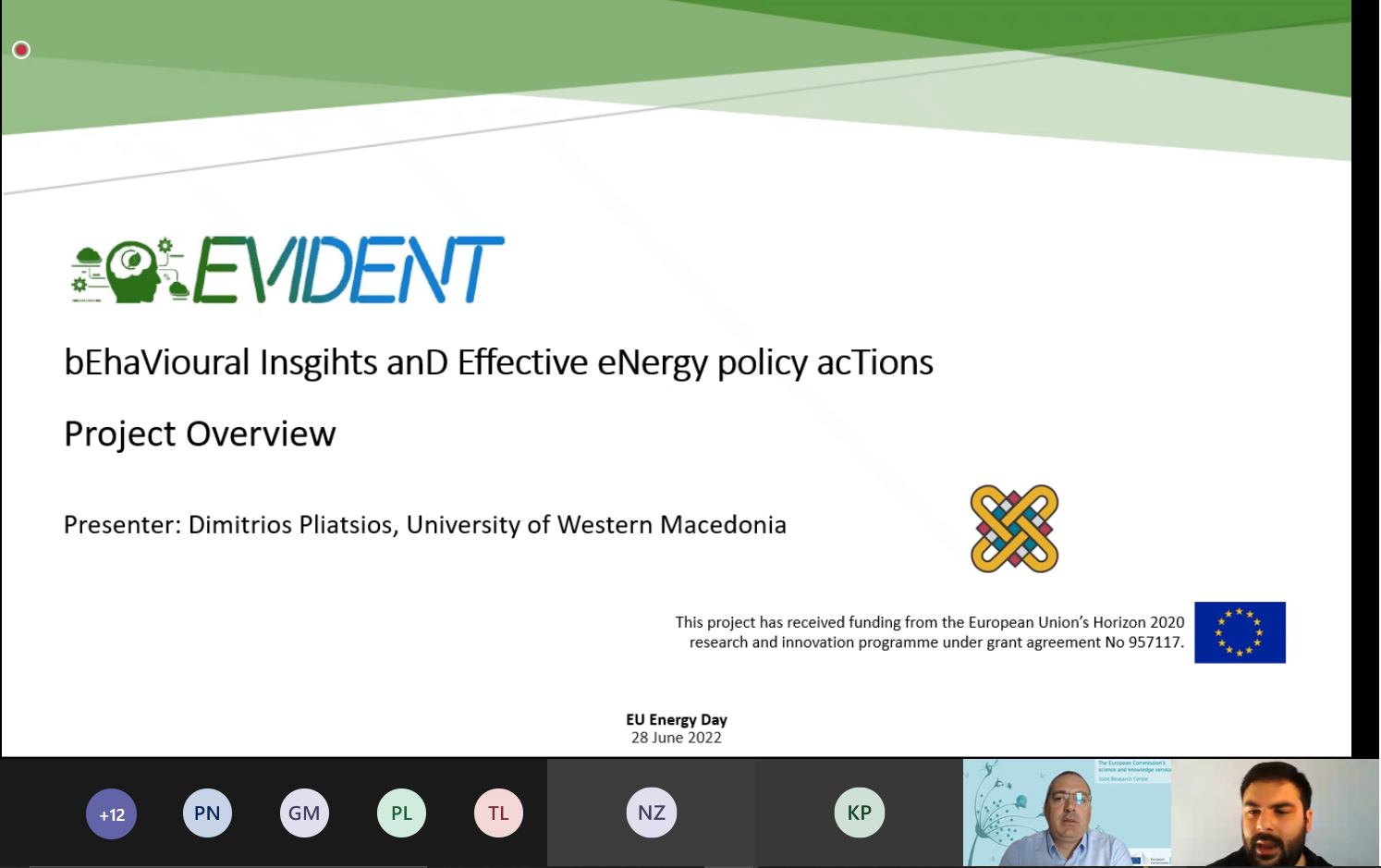
The paper entitled "Towards 6G IoT: Tracing Mobile Sensor Nodes with Deep Learning Clustering in UAV Networks", authored by Y. Spyridis, T. Lagkas, P. Sarigiannidis, V. Argyriou, A. Sarigiannidis, G. Eleftherakis and J. Zhang, was chosen by Editor-in-Chiefs as a work of high interest, and was deemed to be highly important in its corresponding research area. The article considers the objective of tracing a mobile IoT device of unknown location, using a group of UAVs that were equipped with received signal strength indicator (RSSI) sensors. It is worth mentioning that the article was funded by the H2020 TERMINET project (957406), which is coordinated by the ITHACA lab.

Prof. Panagiotis Sarigiannidis presented the activities of the ITHACA lab during his interview for the "Aksones Anaptiksis" news program of ERT3. Specifically, he brought attention to the importance of cybersecurity enhancement in Critical Infrastructures (CIs), in three pillars, namely, the detection of the cyberattack, the mitigation of the cyberattack, and the training of the staff to recognize malicious attempts. In addition, he highlighted the participation of the ITHACA lab in EU-funded research and development projects with the aim of developing tools and software to protect CIs, in smart grids, healthcare infrastructures and transportation environments.
The interview can be accessed here.
The 3rd plenary meeting of the TERMINET project was held virtually on 10-11 February 2022. During the meeting, the partners presented the status and progress of the project and discussed the future actions. TERMINET aims to deliver a novel reference architecture for the next-generation Internet of Things by leveraging cutting-edge technologies such as Multiple-access Edge Computing (MEC), Software Defined Networking (SDN), cloud computing, and virtualisation.
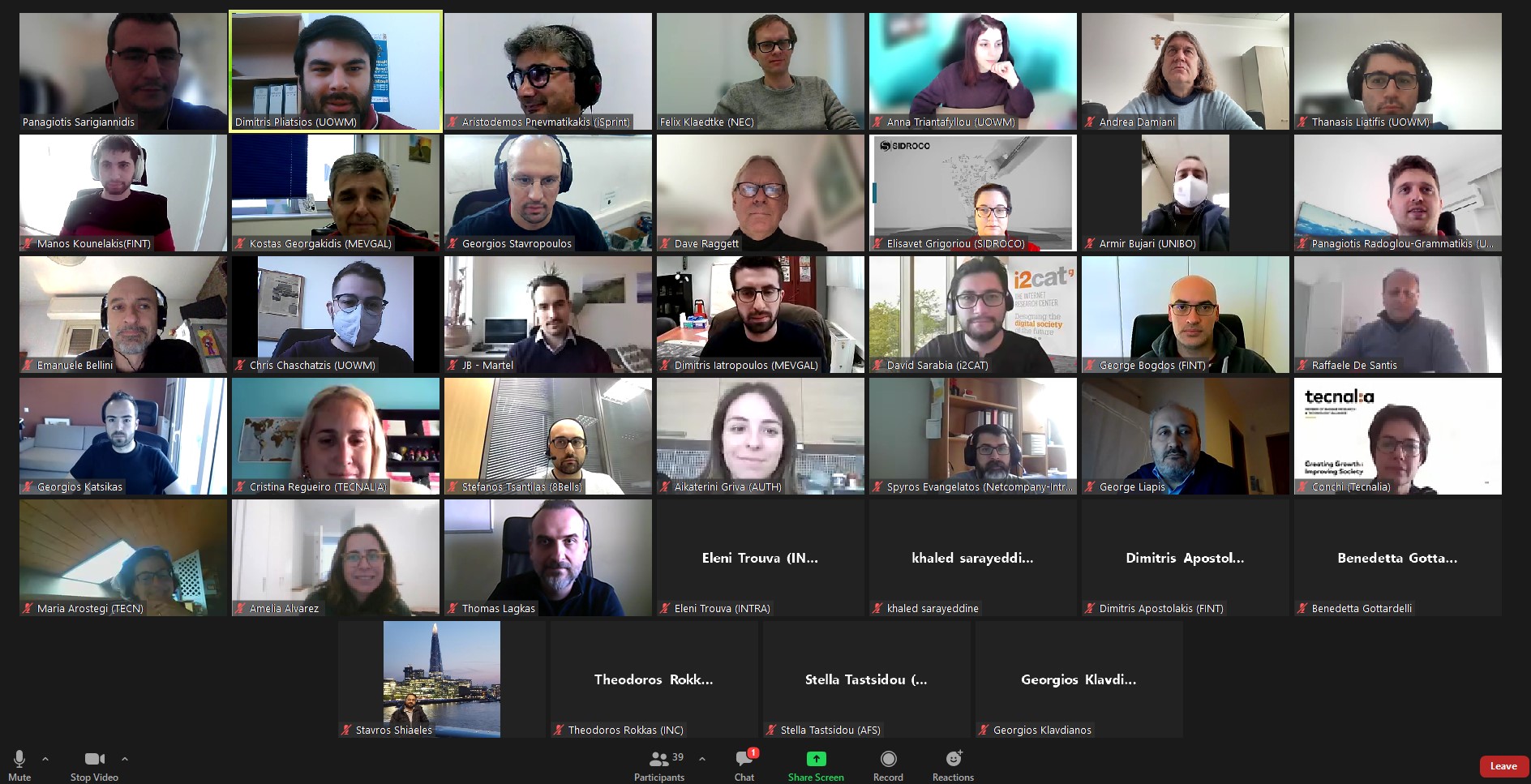
The paper entitled "Detection and Characterization of Stressed Sweet Cherry Tissues Using Machine Learning", authored by C. Chaschatzis, C. Karaiskou, E. Mouratidis, E. Karagiannis, and P. Sarigiannidis, was chosen for the cover of the forthcoming issue (Drones, Volume 6, Issue 1 January 2022). The paper aims to provide solutions towards protecting perennial fruit crops by utilizing machine learning algorithms (Yolov5). The research was co-funded by the European Union and Greek national funds through the Operational Program Competitiveness, Entrepreneurship, and Innovation, grant number T1EDK-04759.
Drones, Volume 6, Issue 1 (January 2022).
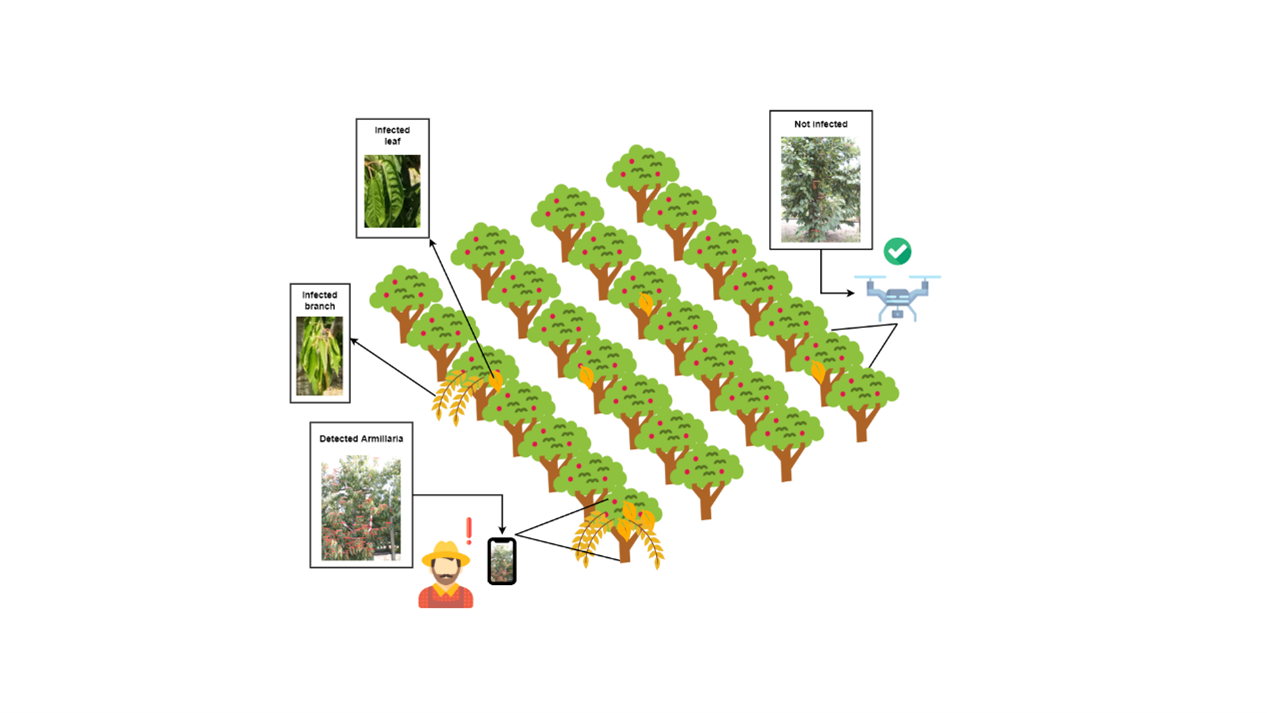
The first research excellence award for the academic year 2020-2021 for the Faculty of Engineering of the University of Western Macedonia was awarded to Prof. Panagiotis Sarigiannidis, director of the ITHACA Lab, and Ph.D. candidate Dimitrios Pliatsios, for their publication “A Survey on SCADA Systems: Secure Protocols, Incidents, Threats and Tactics”. Their research work was published in the IEEE Communication Surveys & Tutorials journal, which publishes tutorials and surveys covering all aspects of telecommunications and features an impact factor of 25.249.
In “A Survey on SCADA Systems: Secure Protocols, Incidents, Threats and Tactics”, an overview of SCADA architectures and industrial communication protocols is provided, along with a presentation of SCADA security objectives, vulnerabilities, and high-impact cybersecurity incidents against critical infrastructures. Additionally, an extensive review of the security methods and tactics aiming to secure SCADA systems is carried out. Finally, the state-of-art regarding SCADA cybersecurity, as well as the future research trends, are analyzed.
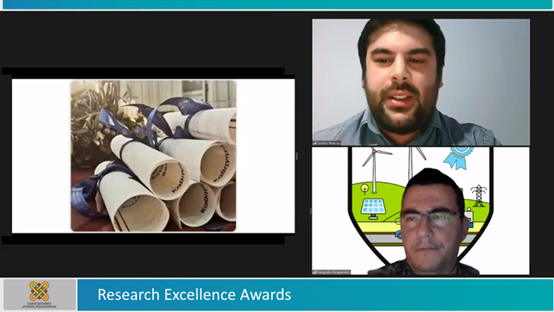
The paper entitled "TRUSTY: A Solution for Threat Hunting Using Data Analysis in Critical Infrastructures", authored by P. Radoglou-Grammatikis, A. Liatifis, E. Grigoriou, T. Saoulidis, A. Sarigiannidis, T. Lagkas and P. Sarigiannidis, won the “Best Student Paper Award”, by IEEE Cyber Security and Resilience. The paper aims to provide solutions towards protecting industrial environments, by utilizing Reinforcement Learning methods to strategically decide on the number of honeypots to be deployed in energy-related critical infrastructure. The research leading to the awarded paper was funded by the H2020 project, SDN-microSENSE (833955).
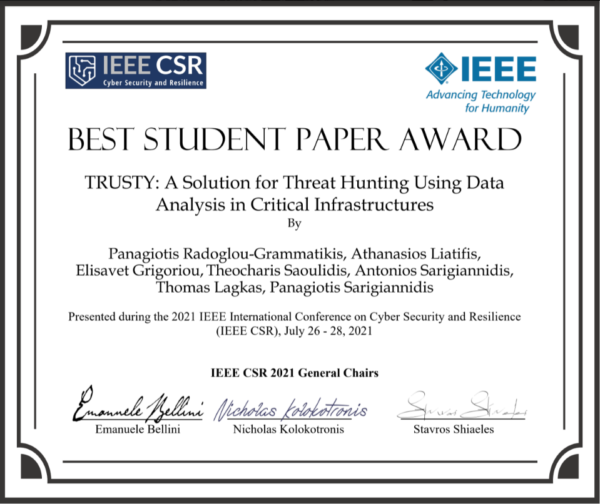
Associate Prof. Panagiotis Sarigiannidis, director of ITHACA Lab, is included amongst the top 2% of scientists worldwide with the greatest impact for the year 2020 in his research area, according to a study conducted by Stanford University, entitled "Data for updated science-wide author databases of standardized citation indicators". A total of 9 researchers and academic staff from the University of Western Macedonia are included in the list, verifying the high quality research activities taking place in the University.
The paper entitled "ARIES: A Novel Multivariate Intrusion Detection System for Smart Grid", authored by P. Radoglou-Grammatikis, P. Sarigiannidis, G. Efstathopoulos and E. Panaousis, was chosen by Editor-in-Chiefs as a work of particular interest, and was deemed to be highly important in its corresponding research area. The article discusses a multi-layered anomaly-based Intrusion Detection System, composed by network flow, packet and operational data-based detection. It is worth mentioned that the article was funded by the H2020 SPEAR project (787011), which is coordinated by the ITHACA lab.
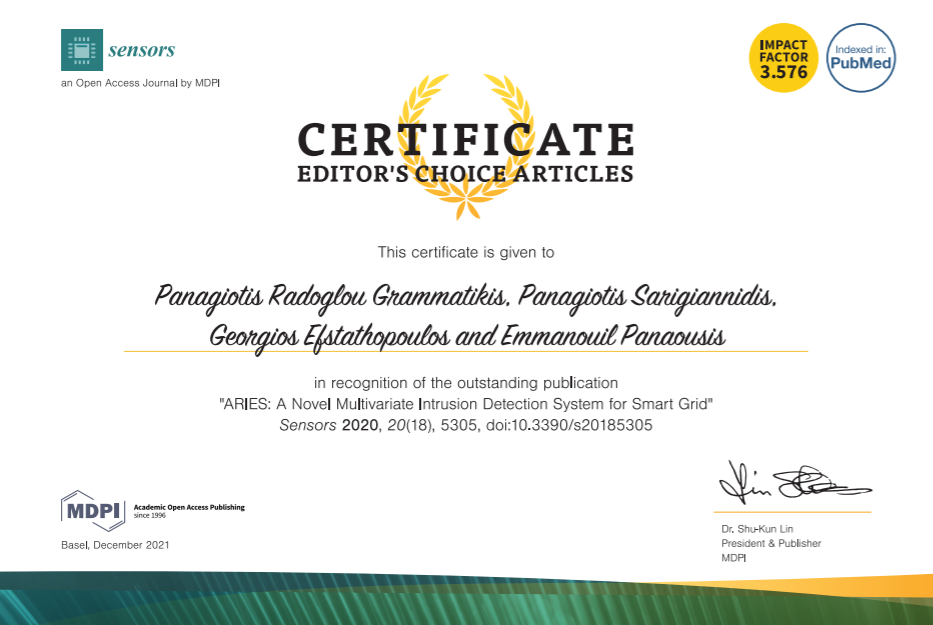
The full article can be accessed here.
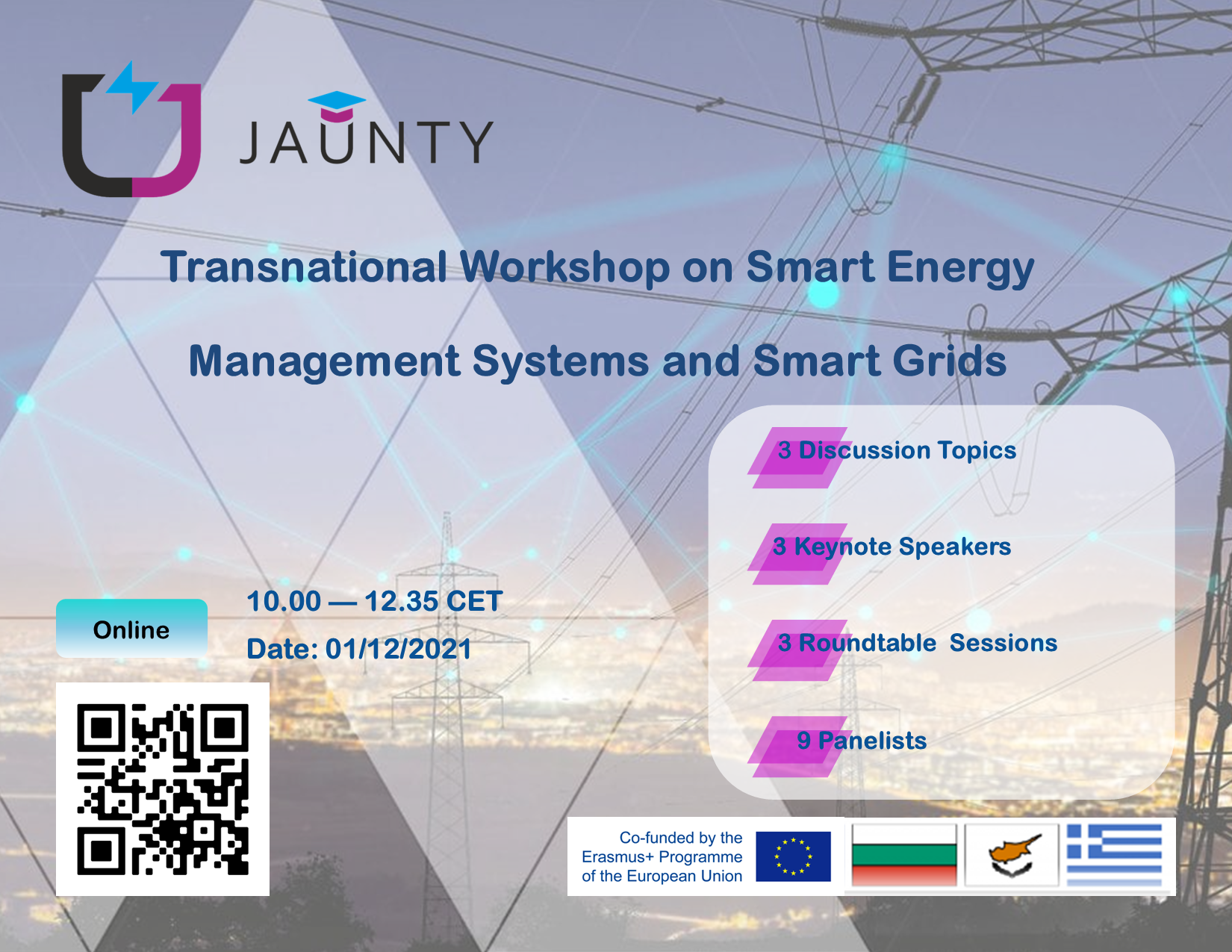
Smart Grid initiatives seek to improve operations, maintenance and planning in the Electric Grid by enabling the seamless exchange of data. However, two major challenges of Smart Energy Management Systems (SEMS) are a) the ability to detect and prevent critical equipment failures in advance and b) the deployment of device-level alerts regarding unusual patterns of off-hour consumption on the fly.
More info
TERMINET Project Coordinator, Prof. Panagiotis Sarigiannidis, Associate Professor at the University of Western Macedonia, participated in the 4th EU-IoT Training Workshop, which was focused on Next Generation IoT (NG-IoT) architectures. During his presentation entitled “TERMINET: A Next-Generation IoT Reference Architecture”, he introduced TERMINET to the audience, demonstrating the project's objectives and challenges. Later on, he presented TERMINET’s architecture model, while highlighting innovative technologies applied in the project, as well as six use case scenarios through which the TERMINET architecture will be demonstrated and validated.
Dimitrios Pliatsios presented the paper entitled "Semi-Grant-Free Non-Orthogonal Multiple Access for Tactile Internet of Things" in the 2021 IEEE International Symposium on Personal, Indoor and Mobile Radio Communications.
Associate Prof. Panagiotis Sarigiannidis was invited to present a keynote talk in the 2nd Global Conference on Artificial Intelligence and Applications (GCAIA 2021). The topic of the lecture was Next Generation Internet of Things: Requirements, Applications & Paradigms, where mutliple applied topics in NG-IoT were demonstrated, based on national and European projects.
The IoT Week 2021 conference welcomes the industry leaders, lead researchers and public service representatives not only from Europe but from around the world to share their views on how the technology can serve society better and identify what are the technological and societal challenges today. During the 'Join the Next Generation IoT ; upcoming Open Calls' session, Professor Panagiotis Sarigiannidis presented the basic objectives and use cases of the TERMINET project. TERMINET is one of the six Next Generation IoT projects that participated in this workshop.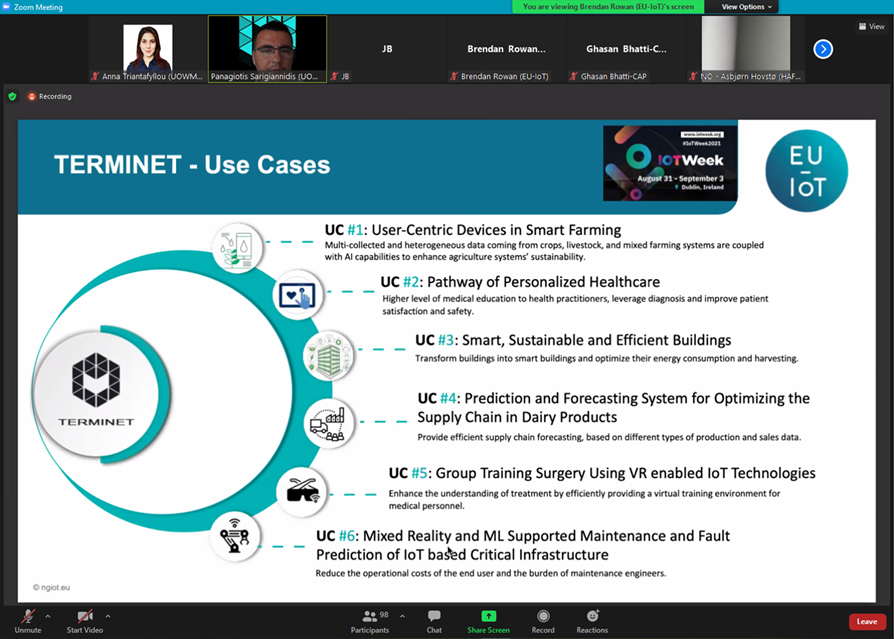
Panagiotis Radoglou-Grammatikis will present the paper entitled: TRUSTY: A Solution for Threat Hunting Using Data Analysis in Critical Infrastructures.
It is evident that IoT is entering multiple fields of everyday life. The proliferation of IoT devices as well as the numerous use cases reveal the very promising potentials of IoT in revolutionizing several aspects of common activities as well as business processes. The new challenge is to identify efficient ways of integrating IoT technologies in contemporary applications exploiting the potentials of real-time monitoring, interactive control, self-management, and data analytics towards “smart” behavior and enhanced performance.
The main scope of the “IoT Applications and Industry 4.0” (IoTI4) workshop is to identify and promote new techniques for the realization of promising IoT applications in various areas, including Industry 4.0 scenarios. The workshop focuses on Industrial Internet of Things systems and applications, which represent the highest value segment of the IoT market. The heavy research endeavors of last years have provided efficient solutions and enhanced technologies that enable the creation of such a network, overcoming several challenges stemming from the special attributes of device-to-device communications, embedded devices, and big data management.
More information: http://ioti4-2021.web.uowm.gr/
Organizing Committee
Thomas Lagkas, International Hellenic University, Greece
Panagiotis Sarigiannidis, University of Western Macedonia, Greece
John Soldatos, Athens Information Technology, Greece
Αssociate Prof. Panagiotis Sarigiannidis conducted a presentation in the "Shaping the future of cybersecurity - Priorities, challenges and funding opportunities for a more resilient Europe" webinar, regarding the SDN-microSENSE project.
View Presentation
The paper “Dual-hop Blockchain Radio Access Networks for Advanced Coverage Expansion” by Theofilos Sachnidis, Alexandros-Apostolos Boulogeorgos, and Panagiotis Sarigiannidis won the best oral presentation award.
After many years of applied research carried out in the laboratories of the Polytechnic School, the first spin-off of the University was created under the name "METAMIND INNOVATIONS I.K.E." which is expected to contribute to the development of the region and to strengthening the competitiveness of the Foundation. The creators of the spin-off are the Associate Professor of the Department of Electrical and Computer Engineering Panagiotis Sargiannidis as well as doctoral candidates who conduct research under his supervision, funded by European and National funds.
Αssociate Prof. Panagiotis Sarigiannidis presented the objectives, activities, and latest results of the SPEAR research project.
Also, Dimitrios Pliatsios presented a paper entitled "A Dynamic Recommendation-based Trust Scheme for the Smart Grid" in Technical Session 3 – Security Models and Trust Schemes.
Paper Abstract: The integration of the internet of things (IoT) concept into the traditional electricity grid introduces several critical vulnerabilities. Intrusion detection systems (IDSs) can be effective countermeasures against cyberattacks, however, they require considerable computational and storage resources. As IoT-enabled metering devices have limited resources, IDSs cannot efficiently ensure security. To this end, trust evaluation schemes have emerged as promising solutions toward protecting resource-constrained metering devices. In this work, we proposed a trust evaluation scheme for the smart grid, that is based on direct trust evaluation and recommendation. The proposed hierarchical scheme is able to evaluate the trustiness of each metering device without requiring any significant modifications to the already deployed infrastructure. Additionally, the proposed scheme features is dynamic, meaning that it is robust against non-adversarial events that negatively impact the device’s trustiness. To validate the performance of the proposed scheme, we carry out network-level simulations and investigate how the various network parameters impact the trust evaluation performance
The SecSoft workshop is a joint initiative from EU Cyber-Security projects: ASTRID, CYBER-TRUST, GUARD, SIMARGL, DATAVAULTS, RAINBOW, PALANTIR and SPEAR.
The main purpose of the SecSoft workshop is to integrate the "Security, Safety, Trust and Privacy support in virtualized environments" conference topic. Beyond security mechanisms at the hypervisor or domain level, the softwarization of legacy security appliances, and federation schemes between multiple domains, this Workshop will look ahead to more dynamic, agile, and autonomic forms of detection and reaction of advanced threats, including the persistence ones. The specific focus will be on secure and trustworthy digital services, including pure virtual services as well as cyber-physical systems. The objective is to stimulate a constructive discussion on overall frameworks and specific aspects that are necessary to build wide situational awareness and to timely counter cyber-attacks: pervasive monitoring and deep inspection, cross-correlation in time and space dimensions and detection, automated control and management of complex orchestratable systems, forensics and legal investigation, trustworthiness and privacy.
The SecSoft workshop is a joint initiative from EU Cyber-Security projects: ASTRID, CYBER-TRUST, GUARD, SIMARGL, DATAVAULTS, RAINBOW, PALANTIR and SPEAR.
Date of Workshop: 2nd of July 2021
Αssociate Prof. Panagiotis Sarigiannidis participated in the 10th International Symposium on Food Technologies, where he presented the objectives, aims, and expected impact of the SmartRoot project.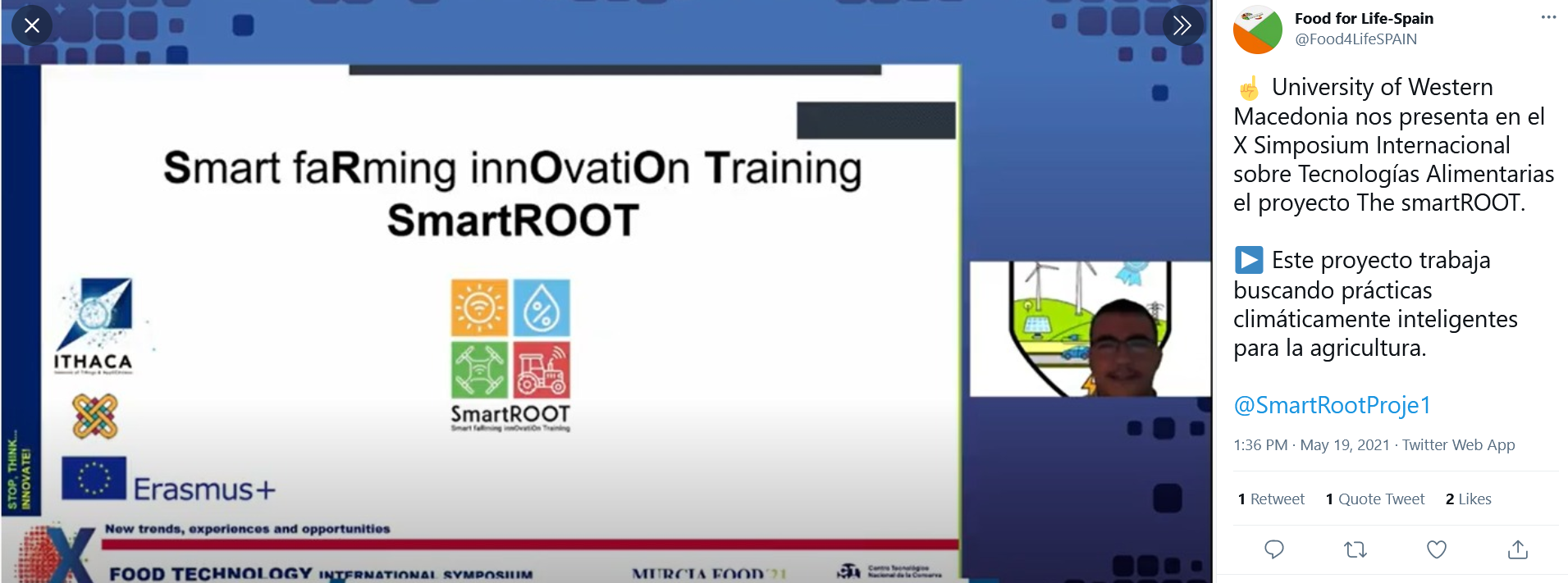
The 10th International Symposium on Food Technology aims to present the latest creations in the field of food technology, providing companies from different European countries with an excellent opportunity to hold bilateral meetings aimed at establishing technology cooperation agreements.
View Presentation
The contemporary world is becoming increasingly dependent on automated computer systems, utilized in various sectors. Reliable Cybersecurity solutions have become essential towards protecting these systems, which are susceptible to cyber attacks aiming at the disclosure or modification of information, and in some cases at the complete disruption of their operation. Deep learning architectures offer novel solutions in this regard, providing methods for detecting and possibly mitigating such threats.
The aim of this competition is to challenge participants to develop robust models capable of performing anomaly detection, classification, and attack recognition in two Cybersecurity applications. In the first case, which targets large power networks, participants will have to develop a reliable detector, able to identify with high precision anomalies in the provided network traffic dataset.
The second case involves environmental attacks on autonomous vehicles, based on modifications in traffic signs that aim to confuse the vehicle, or guide it to a different direction. The developed model in this case should be able to recognize these attacks on the given dataset of traffic sign images and classify them to the correct category.
For more information: https://competition.ioti4-2021.web.uowm.gr/
In conjunction with the ARES workshops EU Projects Symposium 2021 at 16th International Conference on Availability, Reliability and Security (ARES 2021 – http://www.ares-conference.eu).
The EPESec 2021 workshop aims at collecting the most relevant ongoing research efforts in the EPES security field. It also serves as a forum for relevant projects in order to disseminate their security-related results, boost cooperation, and foster the development of the EPES Security Community made of security experts and practitioners.
The workshop is co-organized from the following H2020 R&D projects:
SDN-microSENSE project: https://www.sdnmicrosense.eu/
CYBER-TRUST project: https://cyber-trust.eu/
EnergyShield: https://energy-shield.eu/
FORESIGHT: project: https://foresight-h2020.eu/
PHOENIX: https://phoenix-h2020.eu/
SPEAR: https://www.spear2020.eu/
You can find more details in the following page: https://www.ares-conference.eu/workshops-eu-symposium/epesec-2021/
The kick-off meeting of the INCIDENCE project took place on the 23rd of April 2021. During the meeting the project consortium was introduced, while each presented their respective activities to be carried out throughout the duration of the project.
The goal of the INCIDENCE: promotINg Cyber-hygIene in eDucation through sEcuring distaNCe lEarning project is to support addressing the distance learning and teaching challenges in two levels: a) on educational level, by delivering a novel cyber hygiene framework, tailored to the requirements and characteristics of HEI distance learning and teaching; b) on infrastructure level by offering a safe to use eLearning toolkit reflecting on modern eLearning pedagogies and state of the art cybersecurity and privacy advances. Such solutions will empower both teaching staff and students with knowledge on maintaining a high level of cyber hygiene and new capabilities to respond to potential threats that may arise.
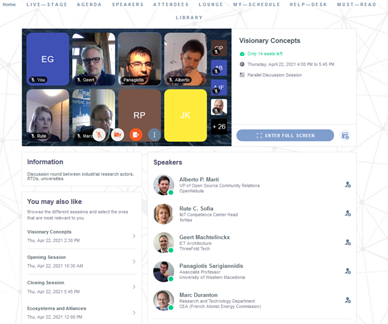
Αssociate Prof. Panagiotis Sarigiannidis participated in a roundtable discussion entitled Visionary Concepts. The discussion was part of the Next Generation IoT and Edge Computing Strategy Forum organized by the European Commission in collaboration with EU-IoT.
The virtual forum aims at gathering top technology experts from across several digital and vertical domains, as well as corporate-strategy level representatives to exchange views on priorities, challenges and opportunities, and establish a commonly shared strategic European vision for the next-generation IoT and (far) edge computing. With its medium-term time perspective, this initiative is part of the implementation of the European data and cloud strategy, and will be supported by a research and innovation theme on Cloud-to-Edge-to-IoT under the first Work Programme of Horizon Europe.
The bi-annual plenary meeting of the SDN-microSENSE (https://www.sdnmicrosense.eu/) took place on the 22nd of April 2021. During the meeting, the partners presented the status and progress of the project and discussed the future actions.
SDN-microSENSE intends to provide a set of secure, privacy-enabled and resilient to cyberattacks tools, thus ensuring the normal operation of decentralised Electrical Power and Energy Systems (EPES) as well as the integrity and the confidentiality of communications. All designed, developed, and tested technologies should consider the latest related research findings and maintain high compliance with current industrial standards (e.g., IEC standards).
Associate Prof. Panagiotis Sarigiannidis, Director of ITHACA, performed an invited presentation on the Next Generation Networks and Internet of Things workshop, organized by the IEEE Student Branch of the University of Western Macedonia for the Global IoT day. His presentation entitled "Next Generation Internet of Things: Modern Applications", introduced the actions and research areas of the ITHACA Lab.
SPEAR co-organises with the following H2020 projects: ASTRID, CYBER-TRUST, GUARD, SIMARGL, DataVaults, RAINBOW, and SIMARGL the 3rd International Workshop on Cyber-Security Threats, Trust and Privacy Management in Software-defined and Virtualized Infrastructures (SecSoft) co-hosted at the 7th IEEE International Conference on Network Softwarization (NetSoft2021) that will be held from June 28 to July 2, 2021, in Tokyo, Japan. SecSoft 2021 workshop homepage: https://www.astrid-project.eu/secsoft/. SPEAR participates in the Technical Program Committee of SecSoft 2021 with Panagiotis Sarigiannidis from the University of Western Macedonia.
SPEAR and SDN-microSENSE are co-organizing the 2021 IEEE CSR Workshop on Electrical Power and Energy Systems Security, Privacy and Resilience (EPES-SPR).
Drone handler Stelios Loupidis of GEOSENSE, the Technical Manager of GEOSENSE Vassilis Polychronos, the Grevena Agricultural Collaboration’s agronomist Sakis Folinas, the PhD. Candidate of the Department of Electrical and Computer Engineering, UOWM, Giorgos Kakamoukas and the Assistant Prof. Panagiotis Sarigiannidis, gave an interview at ERT3 TV – O3 and Nikolaos Pitsiakidis.
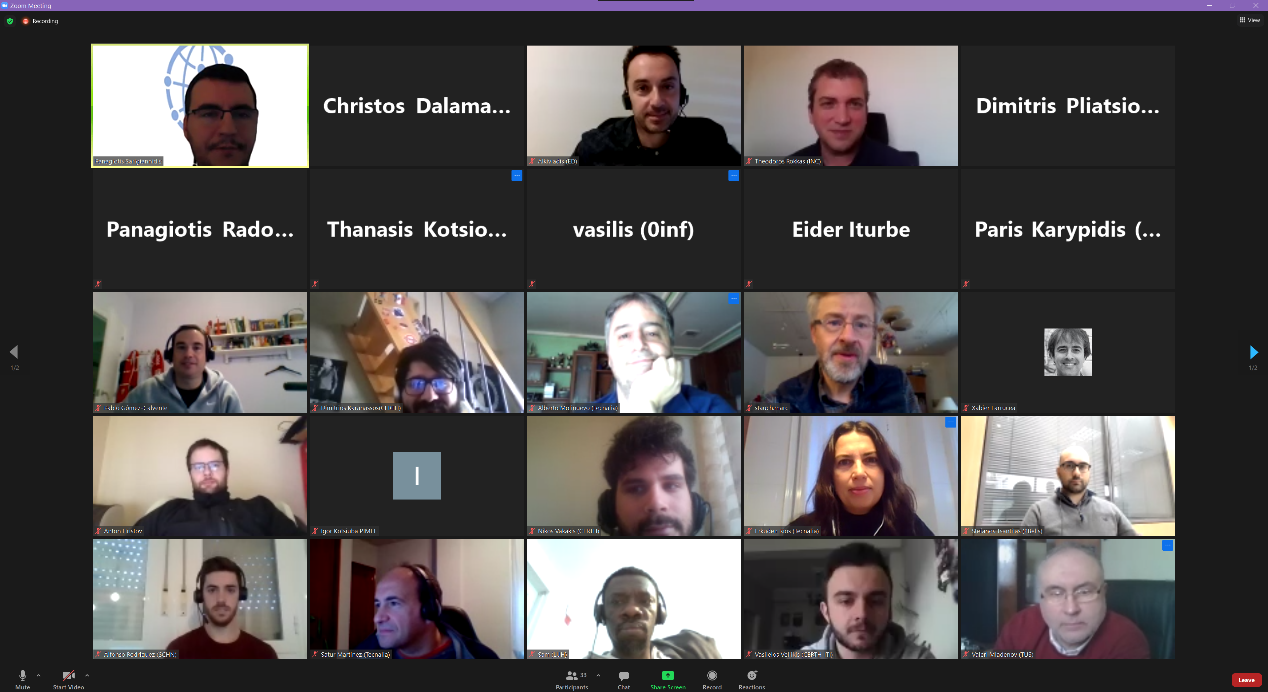 Due to the COVID-19 emergency situation, the 6th plenary meeting of the SPEAR project took place virtually during 15 and 16 January 2021.
Due to the COVID-19 emergency situation, the 6th plenary meeting of the SPEAR project took place virtually during 15 and 16 January 2021.
Towards the end of the project and the final evaluation by the end-users, the meeting was focused on the progress of deploying the SPEAR platform on each of the four pilots, namely, a) the VETS hydropower plant, b) the substation laboratory at Tecnalia, c) Both the Testing, Research and Standards Centre and the Lavrio Power Plant of PPC, and d) the smart home of CERTH.
During each demonstration, the end-users performed cyberattacks against the industrial devices used in each pilot, and the SPEAR platform successfully detected these attacks and visualised the relevant security events. Finalising the SPEAR deployments in pilots, the final evaluation and user acceptance testing will follow in the next months.
Dr. Panagiotis Sarigiannidis, coordinator of the SPEAR project and Assistant Professor at the University of Western Macedonia, gave an interview at ERT3 TV and Nikolaos Pitsiakidis about the SPEAR project and the challenges that we face and SPEAR tries to solve in terms of cybersecurity and privacy in smart grids.
The kick-off meeting of the EU-funded H2020 project #EVIDENT was held virtually on 15-16 December, 2020. 9 project partners from 5 countries will investigate the socio-economic non-energy impacts and behavioral insights on energy efficiency interventions.
The kick-off meeting was held virtually on 23-24 November, 2020. 27 project partners from 11 countries will investigate a novel next generation reference architecture based on cutting-edge technologies for next generation IoT.
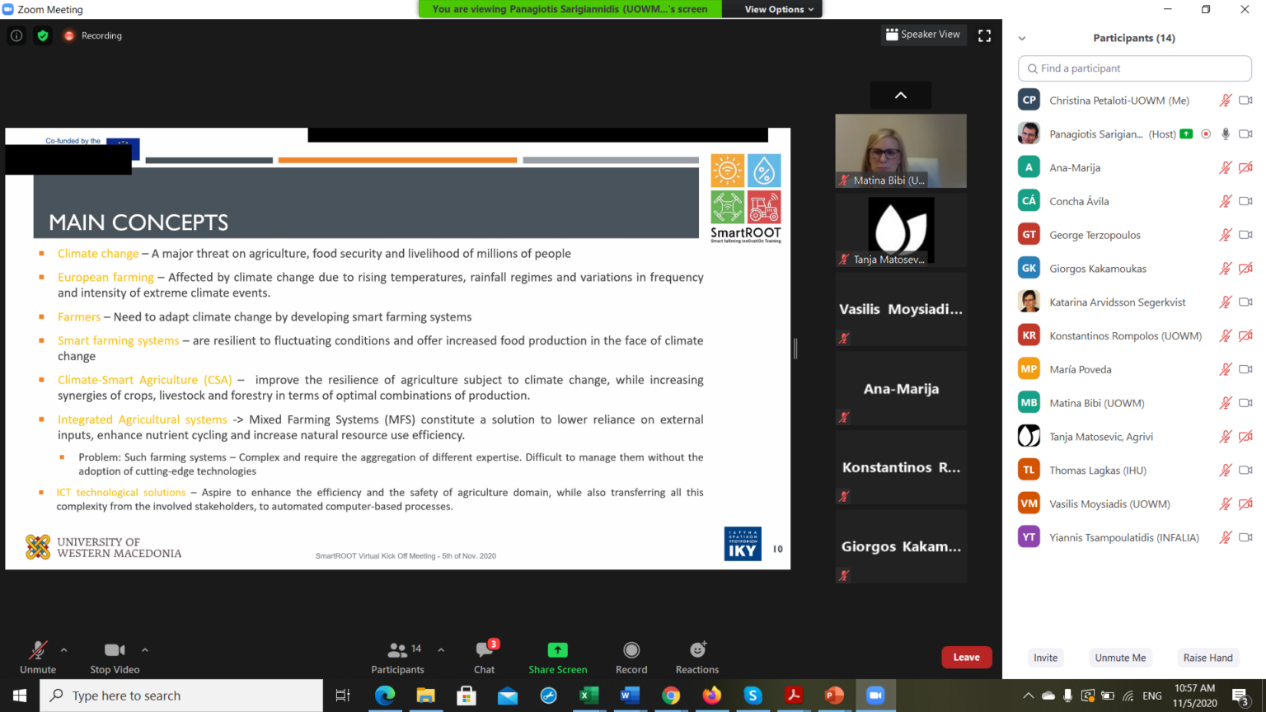 On Thursday 05/11/2020, the first online meeting of the Erasmus+ project SmartROOT: Smart faRming innOvatiOn Training was held. The project is implemented in the framework of the Erasmus+ Strategic Partnerships.
On Thursday 05/11/2020, the first online meeting of the Erasmus+ project SmartROOT: Smart faRming innOvatiOn Training was held. The project is implemented in the framework of the Erasmus+ Strategic Partnerships.
The SmartROOT project, which is coordinated by the Associate Professor of the Department of Electrical and Computer Engineering of the University of Western Macedonia Sarigiannidis Panagiotis, includes 7 partners. The SmartROOT project partners are comprised of 3 Universities (University of Western Macedonia – Greece, International Hellenic University – Greece and Sveriges LnatbruksUniversitet – Sweden) and 4 companies (Sidroco Holdings Limited – Cyprus, Federacion Espanola de Indurrtias de la Alimentacion y Bebidas – Spain, INFALIA Private Company – Greece and AGRIVI doo za Proizvodnju, Trgovinu Iusluge – Croatia).
-
2021
-
2020
Address
Internet of Things and Applications Lab
Department of Electrical and Computer Engineering
University of Western Macedonia Campus
ZEP Area, Kozani 50100
Greece
Contact Information
tel: +30 2461 056527
Email: ithaca@uowm.gr


